They all care about democracy
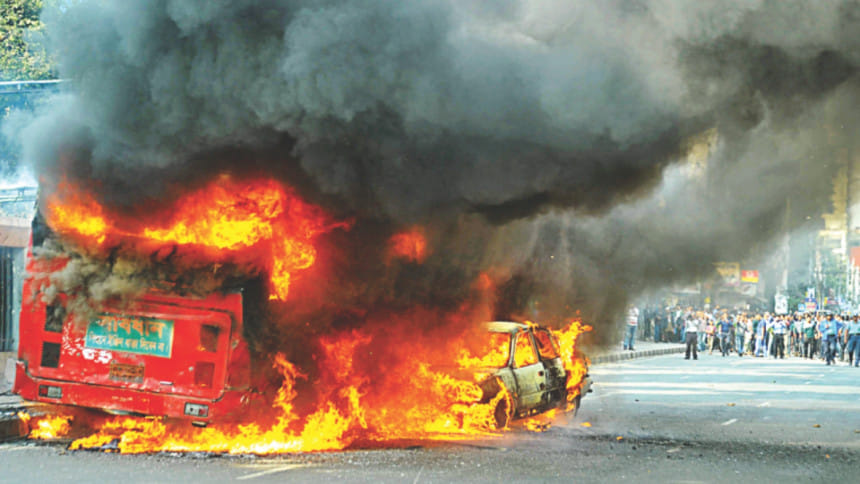
The month of January has come again, starting a new year with new hopes and new promises. But it makes no difference to those stuck in a circle of pain, sorrow and uncertainties resulted from the unprecedented violence last year.
Some lost their dearest ones while some lost the lone bread earners of their families during the horrific time the country experienced from January to March. Numerous petrol and crude bombs went off, public transport came under arson attacks and innocent citizens got killed. It was all during the 20-party's countrywide blockade, coupled with 43 days of hartal.
At least 95 people were killed in violence since January 5, the day the alliance announced the blockade. More than 1,500 people suffered injuries. Another 45 people got killed in "shootouts" with law enforcement agencies. Half the “shootout” victims were allegedly involved in arson attacks.
The overall picture, be it of politics or economy, has changed, but the ordeals of those injured and the families of those killed have not. We have laws in the country. But these families are yet to get justice.
The Daily Star visited over a dozen victims' families to know how their lives are going on following the horrible crimes. The newspaper will publish their stories for the next six days, starting from tomorrow.
One called it Democracy Killing Day and the other the Day of Victory for Democracy.
It was January 5, 2015.
On this day -- the first anniversary of 10th parliamentary election -- the two rival political alliances faced off -- both claiming to be fighting for democracy.
For the BNP-led 20-party coalition, which boycotted the January 5 polls in 2014, it was a black day. The alliance wanted to stage a protest rally.
And the Awami League-led 14-party alliance wanted to celebrate the day, as the AL won a consecutive second term through that election.
Denied permission for the rally and virtually confined to her Gulshan office, BNP Chairperson Khaleda Zia that day announced an indefinite countrywide blockade.
But the people, whose welfare is what democracy is all about, were left to suffer during the blockade. They never saw so many incidents of hurling petrol bombs at buses full of passengers, burning of people, including helpers sleeping inside covered vans or trucks.
From two-and-a-half-year-old Safir to octogenarian Abu Taher, from schoolteacher Altaf Hossain to priest Alok Chakrobarty, from housewife Rahima Begum to truck helper Sohag -- none was spared.
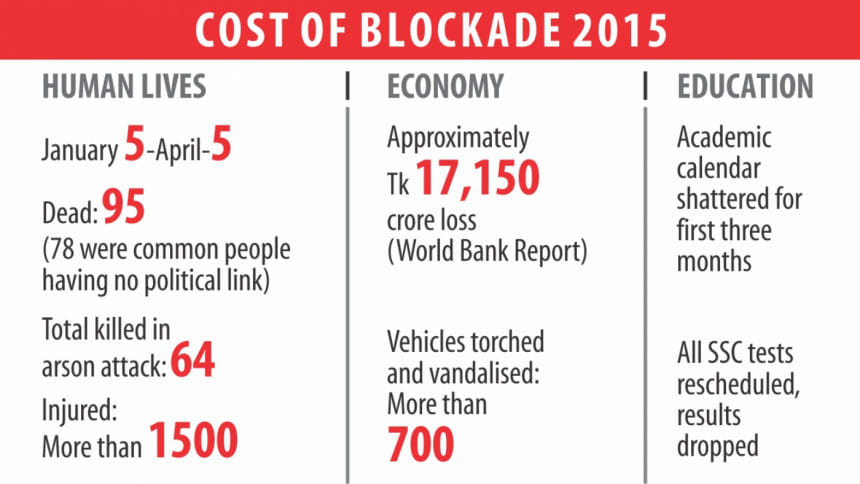
Businessmen kept losing several hundred crores every day, helpless farmers watched their crops rot in the fields and parents remained worried about children's future seeing exam schedules collapse and no safety on roads to exam halls.
But the battling sides -- the Awami League and the BNP -- made no move to bring an end to this situation through talks. The government tried to contain the situation using law-enforcing agencies, while the blockaders kept throwing petrol bombs at public transports, leaving people in a state of panic.
Because of the rigidity of the two camps, the country experienced the longest ever nonstop political agitation -- blockade -- in its history.
At least 95 people died in violence since January 5. More than 1,500 suffered injuries. Another 45 people got killed in "shootouts" with law enforcement agencies. Half the shootout victims were allegedly involved in arson attacks.
Although the victims received financial assistance from the government and some private organisations, many are still struggling to get back to normal life.
The families that lost the lone bread-earners are living in uncertainty while those who suffered injuries have recovered but could not yet resume their work.
Take, for example, the case of Liton, a truck driver from Shailakupa of Jhenidah.
He will never be able to drive truck anymore as a bomb blew away his one eye and damaged the other on January 14.
"I want to live," he told this newspaper last month.
Rita Begum of Faridpur lost her trucker husband and father in a petrol bomb attack on February 7. Now, she shudders to think what would happen to her two minor daughters.
"I panic thinking of my children's future," said the widow.
Law enforcers arrested hundreds of pro-blockade activists for their alleged involvement in the mindless attacks and dozens of cases were filed against named and unnamed persons.
However, the trial in any of such cases is yet to begin. Many of the victim families are sceptical about getting justice.
The nationwide blockade coupled with frequent shutdowns affected every aspect of public life.
Economy was hit hard.
The blockade paralysed supply chain, hit farm incomes, snapped inter-district road and rail communications and cornered local businesses, particularly the small ones.
Farmers were not being able to take their produce to the market. According to the shop owners, their sales had dropped by 70 percent.
But the major damage was the serious transport disruption between Dhaka and other districts due to the deadly arson and petrol bomb attacks.
According to a World Bank report released in April last year, Bangladesh lost $2.2 billion (approximately Tk 17,150 crore) or 1 percentage point of gross domestic product (GDP) due to the prolonged political turmoil.
The amount is more than two-thirds of the estimated cost of constructing the 6.15km Padma bridge, it said in its “Bangladesh Development Update Report 2015”.
The Washington-based multilateral lender said the unrest caused greater damage to the country's economy than that in 2013 when the two main political parties fought over general elections.
Education is another sector that was badly affected.
The blockade had upset academic activities at the very beginning of the year, frustrating about five crore students from schools to universities.
Around 14 lakh SSC examinees, in particular, were the worst victims of the situation as none of their exams were held as per schedule. All the tests were deferred and held on weekends due to hartals. Education Minister Nurul Islam Nahid had said it took 23 additional days to complete the tests.
Most of the educational institutions could not hold classes for a few months, except on the weekends, affecting the academic calendar.
The blockade also put a negative impact on the results of SSC exams as the pass rate and the number of GPA-5 scorers came down. Chairmen of almost all education boards, teachers and guardians cited the political turmoil as one of the main reasons for the fall.
While the memories of the mayhem are still fresh in people's minds, a renewed tension in the political arena has created public anxieties, especially after both the parties -- the AL and the BNP -- have once again announced plans to observe "Democracy Killing Day" and "Day of Victory for Democracy".

 For all latest news, follow The Daily Star's Google News channel.
For all latest news, follow The Daily Star's Google News channel. 

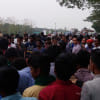

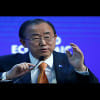
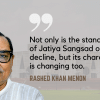
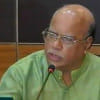


Comments